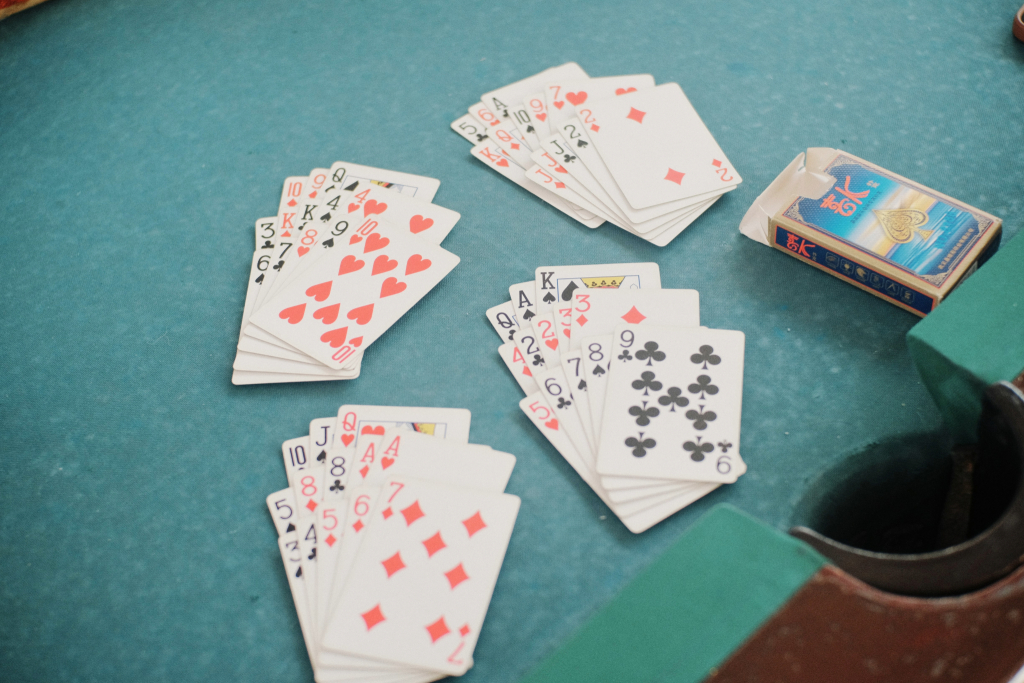Fika – The Swedish Tradition As A State Of Mind
Work-life balance is a state that most of the modern generation has been chasing for the best part of two decades now. It can sometimes feel counter intuitive given the world that we live in – one in which we’re always connected, online, and rarely out of reach for a text or an email about work after hours.

Fika has been a long-standing tradition of reconnecting with one’s community and is mandatory in many workplaces in Sweden. ©Nathan Dumlao/Unsplash
Since the Covid-19 pandemic hit, and working from home became more widespread than ever, the lines between work and personal life have blurred even further. And sure, one of the benefits has been that you can just find an escape – like this list of online casinos for Swedish players – without the stigma that comes with it but even indulgences are hard to embrace when the next bit of responsibility is around the corner.
So how do we actually achieve this balance? One that both elevates our own lives and also helps make the workplace more healthy, tolerable, and rewarding? Cultures all around the world have battled this question for centuries. Spain and Japan encourage siestas or naps during the work day, and Italy encourages turning meal time into community time.
Along those lines is also Fika, a Swedish custom that involves leaving your work at your desk and gathering with your colleagues or friends for a break that usually involves hot drinks and sweets.
What Exactly Is Fika In Sweden?
On the surface, it’s exactly what it sounds like – a custom that involves gathering with your friends or colleagues, often multiple times a day, to drink some hot beverages, have some cake, and just talk for a short while. You’re thinking, “well, that’s just a coffee break” and that is true for the mechanical parts of it: coffee and a chat before heading back.
In Sweden, however, this kind of a break has more of a spiritual tilt to it; it’s not just the act of getting away from work for a short while, but is rooted around celebrating human connection and prioritizing it. It is why many workplaces in Sweden have mandatory fikas – and multiple ones at that – throughout the work day. True to the long-lasting custom celebrated in the country for centuries, it is a reminder that there is more to life than work.
Fika in Sweden usually involves pastries or baked goods, but it can also be simply enjoying a cup of coffee or tea. And while fika can be enjoyed alone, it’s usually a social affair. The beauty of fika is that it can be enjoyed in any setting – at home, at work, or even on the go. There are no rules or regulations, so you can take these breaks whenever and however you like.
What Does Fika Mean?
It is widely believed that the word fika is just a reversal of the syllables of the word kaffi which is how coffee was spelled in the 19th century. There isn’t any conclusive document on the reason this reversal happened, but there is an apocryphal account which states that coffee had been banned at many points in Sweden’s history, and the locals who liked to indulge had to come up with a creative cover when talking about it. This is believed to have caught on, used as a noun to mean coffee for the most part, before turning into a verb akin to how the world now ‘googles’ something.
Quality Of Work Life Important To Curb Burnout
As mentioned earlier, work-life balance is something the modern world chases all the time. The reason for this pursuit for a balance is because the modern world has also chased and heavily funded another pursuit pretty rigorously – how to increase employee productivity.
In a world that has become progressively smaller thanks to digital connectivity, trying to achieve productivity at low costs has become something of a norm. This in turn has affected satisfaction in the workplace, which has cascaded into higher and higher levels of burnout.
There has been plenty of research that suggests that the most effective factors to keep productivity up while ensuring there’s no burnout in the workplace are to improve both the quality of life outside the workplace as well as inside it.
The former involves things like providing an appropriate salary and a safe work environment, while also ensuring adequate levels of occupational healthcare to keep employees satisfied on the level of comfort in life. The latter involves creating organizational structures which ensure that stress experienced at the workplace is as minimal as possible. One way of doing this, of course, is through effective management – proper delegation and resource allocation.
But a crucial part of this also involves ensuring that stress from the actual mechanical parts of the jobs not seeping into the employees’ morale. Concepts like Fika can contribute greatly to this part of burnout management; it is no secret that a good work culture can more than make up for the losses that are produced by burnout, and something as simple as an enforced coffee break can significantly improve the quality of work life.
How Fika Can Improve One’s Relationship With Work
In 2014, research carried out by by the Organisation for Economic Co-operation Development (OECD) found that Sweden came in at 11th rank for productivity in the world, with the USA – which has increasingly moved towards hard boundaries of when work ends – ranking fourth for the same. In comparison, countries like Japan, South Korea and India, which are based in Asia and have long working hours are consistently ranked lower in productivity despite the manifold resources available to them.
Eight years on from that bit of research, improving employees’ relationship with work has almost become a given. A whole industry has popped up around sustainable productivity. More recent phenomena such as mindfulness about the use of technology on a daily basis have become so mainstream that most people in a workplace are conscious about how they engage with the world on a daily basis.
If you try to examine the roots of such movements, you’ll find that it always comes down to one fundamental thing: we are social beings who need to create time for reflection, for recreation, and for community building.
Put this side-by-side with the concept of Fika and you’ll see that all those boxes can be ticked. A simple activity at regular intervals through the day, which involves only treating yourself to the warmth of both a beverage and the company of people you enjoy can accrue and make big changes to your life over the period of a few months.
In that sense, the Swedish tradition of Fika is not just a simple break – it’s enabling a state of mind that comes with many benefits, both for an individual and for a group of people. In the highly prioritized race to figure out how to keep the basic joys of human life alive, a tradition that is a few centuries old could be the starting point of a substantial solution.



